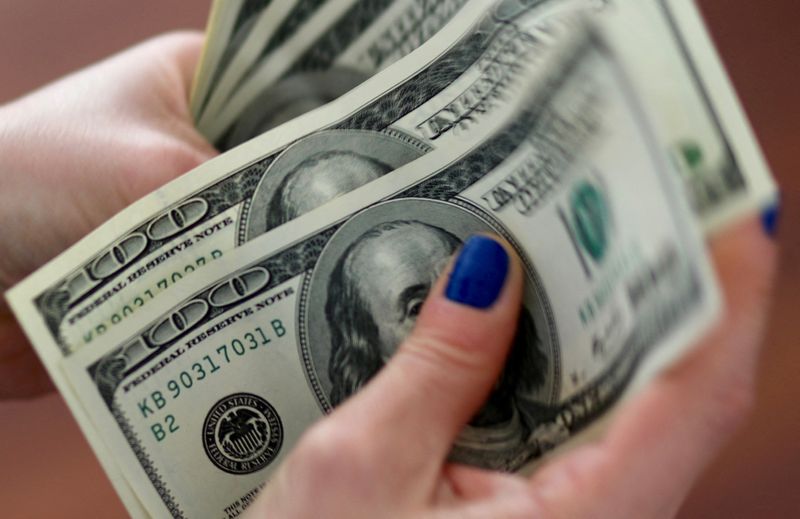By Amanda Cooper
LONDON (Reuters) -The euro edged up on Thursday after data suggested the downturn in the euro zone economy may be starting to ease, although holidays in the U.S. and Japan kept trading activity muted.
With markets shut in Japan and the U.S. for Thanksgiving holidays, currencies traded with some volatility, as liquidity was thinner than usual.
A flurry of preliminary surveys showed recession in economic powerhouse Germany may be shallower than expected, which offset a downbeat read of French business activity.
Earlier in the day, the euro rose against most other major currencies, following the surveys.
“There’s been a bit of an upside surprise on Germany and the euro zone and yes, it’s an improvement on the prior, but all this is saying is things are getting slightly less bad,” TraderX strategist Michael Brown said, of Thursday’s flash Composite Purchasing Managers’ Index (PMI) for November.
The survey showed the euro zone economy is on track to contract again in the fourth quarter.
The PMI covering the bloc’s dominant services industry rose to 48.2 this month from 47.8, slightly above the Reuters poll estimate for 48.1, but firmly in contraction territory.
Manufacturing activity, which has contracted every month since July 2022, fell again in November. Its PMI rose to 43.8 from 43.1, beating the poll expectation for 43.4 but was still below breakeven.
“It’s not exactly cause for much optimism … and basically reiterates what we already knew: that the economy is facing a tough winter ahead,” Brown said.
The euro was up last up 0.18% on the day at $1.09075, having traded as high as $1.0931 earlier in the day.
“Euro/dollar trades back above $1.09 but may face formidable resistance above at $1.096,” Saxo Bank strategists said in a note.
Markets offered a muted reaction to a shock victory by anti-EU far-right populist Geert Wilders in Wednesday’s parliamentary elections in the Netherlands.
Sterling recovered some ground against the dollar after dropping 0.3% on Wednesday when British Finance Minister Jeremy Hunt delivered a budget update that projected far less growth than previously forecast and a flurry of tax cuts and subsidies for Britain’s struggling economy.
A separate read of UK business activity showed companies reported a marginal return to growth in early November after three months of contraction, which gave the pound a small boost.
Sterling was last up 0.3% on the day at $1.2538, having risen to a high of $1.2575 after the PMI data.
The dollar index fell 0.14%, down for the first time since Monday, having bounced off 2-1/2-month lows the day before, after data showed the number of Americans filing new claims for jobless benefits fell more than expected last week.
Another worrying indicator for the Federal Reserve was a survey from the University of Michigan that showed consumers this month anticipate higher inflation both in the near and long term.
Markets have dialled back expectations of Fed rate cuts in 2024, with futures now showing a 27% chance that the Fed cuts its target rate at the March 2024 policy meeting, a likelihood that increases to 40% by May, according to CME Group’s FedWatch tool.
The weakness in the dollar has buoyed the yen, along with expectations the Bank of Japan may shift away from its ultra-loose monetary policy next year.
After pulling back from the brink of 152 per dollar at the start of last week, the yen hit a two-month high of 147.155 on Tuesday. It last traded at 149.59.
In cryptocurrencies, Binance CEO Changpeng Zhao has stepped down and pleaded guilty to breaking criminal U.S. anti-money laundering laws as part of a $4 billion settlement resolving a years-long investigation into the world’s largest crypto exchange. Bitcoin fell 1% to $37,047, having risen by nearly 5% on Wednesday.
(Additional reporting by Vidya Ranganathan in Singapore; Editing by Lincoln Feast, Emelia Sithole-Matarise, Marguerita Choy and Christina Fincher)
Read the full article here

